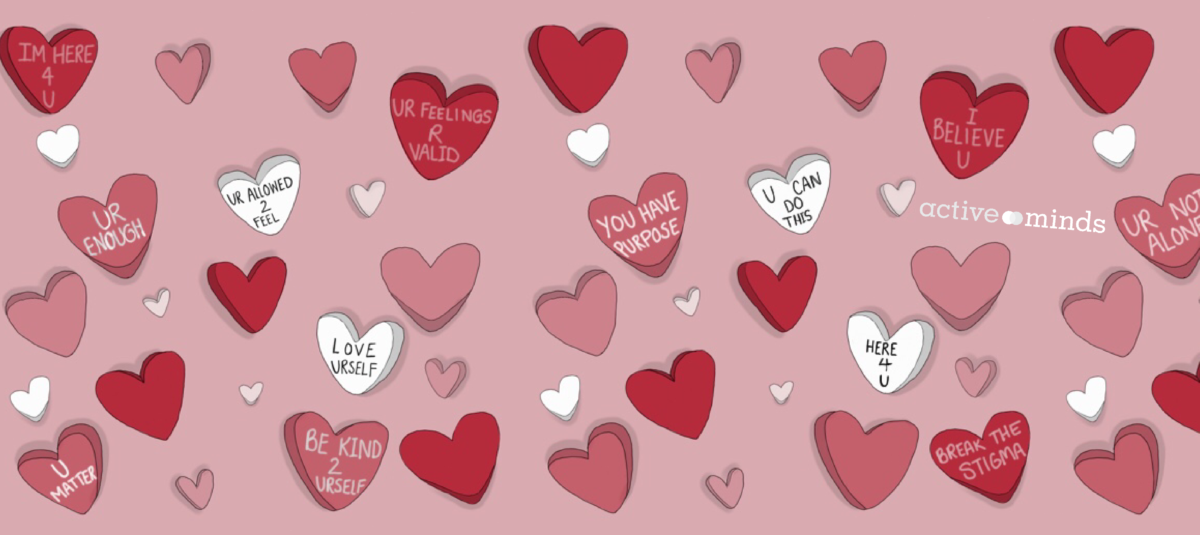It’s that time of the year again. The aisles of your local CVS are lined with pink and red candy hearts , The Notebook is constantly playing on HBO, and of course: article and blog post after blog post is being written about how to enjoy being single. This is not one of those blog posts.
Friends that I’ve had for years like to joke that they’ve never known me to be single; I’m a serial monogamist. I think that’s a negative way to put it, I just love love. A meet-cute in a library, a first date at a movie theatre, making fun of each other’s music taste on the ride home, what’s not to like about that?
Even though I’m currently in a very successful and fulfilling relationship, my track record is bad. I mean really bad, crash and burn bad. The main reason I’ve had so many failed relationships is my mood disorder, a form of bipolar that I was diagnosed with when I was fifteen. I start relationships when I’m in a manic mood. I love going out to clubs and parties, getting dressed up, spending too much money, making a wild plan and then going through with it. When I’m living like that it’s easy to fall into a relationship; I’m a girl with a fun and outgoing personality who you can go on adventures with. The problems start when in a few weeks or months I get depressed again. I don’t get out of bed, much less go to clubs. I barely shower or eat. I cry easily and once I start, it takes hours to stop. The person I start dating usually can’t handle this and takes off.
I know that I’m not alone in this though. Many people have bipolar disorders or some other mood disorder with depressive symptoms, and some people are going through a hard life situation and just feeling depressed. But everyone deserves love. So for this Valentine’s Day, I’ve decided to create a list of tips for people with depression and their partners. These have worked for me and I hope they can help you.
1. Go to therapy.
I recommend therapy to every person I know, regardless of the status of their mental health. Being able to talk openly about every aspect of your life with someone not directly involved in it relieves stress. If you’re experiencing depression, therapy can be a part of your treatment plan. If your partner is depressed, it can provide an avenue to talk through how to help your partner and/or how to healthily manage your own mental health when entering your new relationship. If therapy is not available to you, as is often the case with current US healthcare, consider journaling as a way to reflect on you and your partner’s feelings in private.
2. Support is key.
Talking about your life, good and bad, with your partner is a crucial part of intimacy. That being said, your partner cannot be the only person you’re talking to, especially if you’re feeling depressed. It’s important to have a circle of friends and family to rely on. If you isolate your social life to being just you and your partner, this often puts a lot of pressure on your partner to always be there for you. This stress can end a relationship. Additionally, if you’re struggling with depression you should seek professional help, as most people aren’t aware of the correct ways to help or cannot handle the additional stress.
3. Be honest.
This goes for everyone. Although it can be difficult to talk about mental health struggles because they’re still highly stigmatized, it is crucial to be honest about your health with your partner. If you know you have depression, let your potential partner know before the relationship becomes more serious. This way, if your partner doesn’t have the capacity to date a person with depression, you can end up as friends. If your partner says they don’t care if you’re depressed and they still want to be with you etc., make sure they know what you mean. Many people are not aware of what depression looks like and its different forms, so explaining what your individual symptoms look like can be important.
If your partner has depression, they may think of the worst possible outcomes of situations or become paranoid that people dislike them. Therefore, reassuring them often that you love and care for them can often make all the difference.
Even though dating people experiencing depression has its complications, it is still extremely similar to dating a neurotypical. I’ll leave you with one last dating tip that is always useful: don’t forget Valentine’s day.




